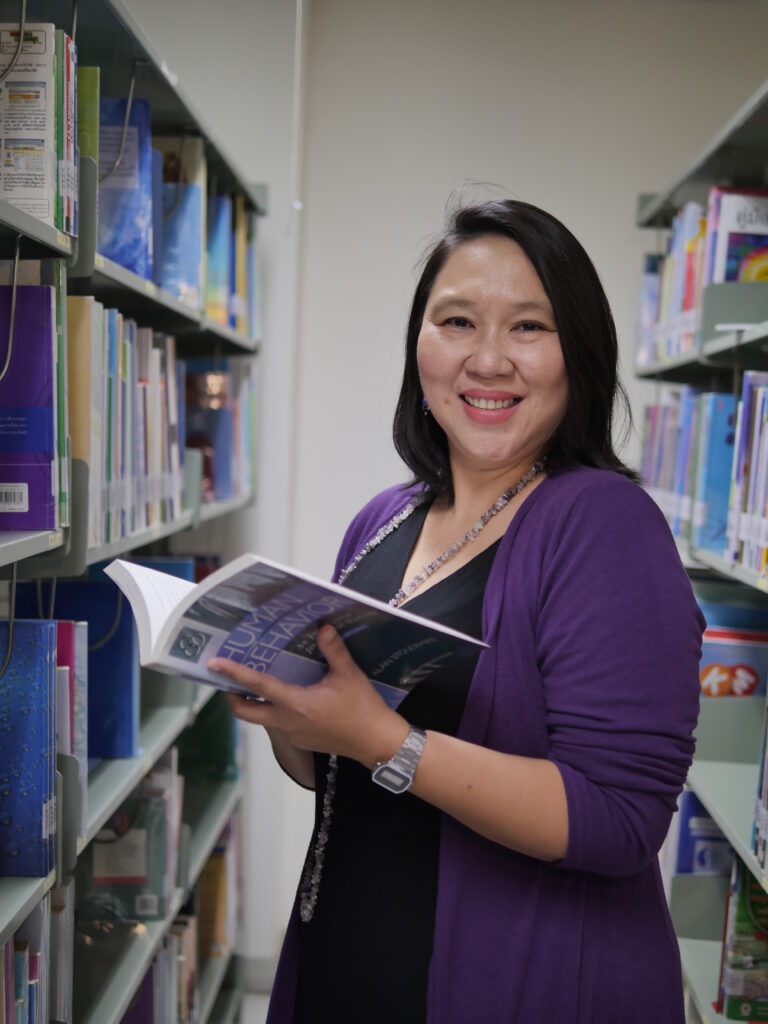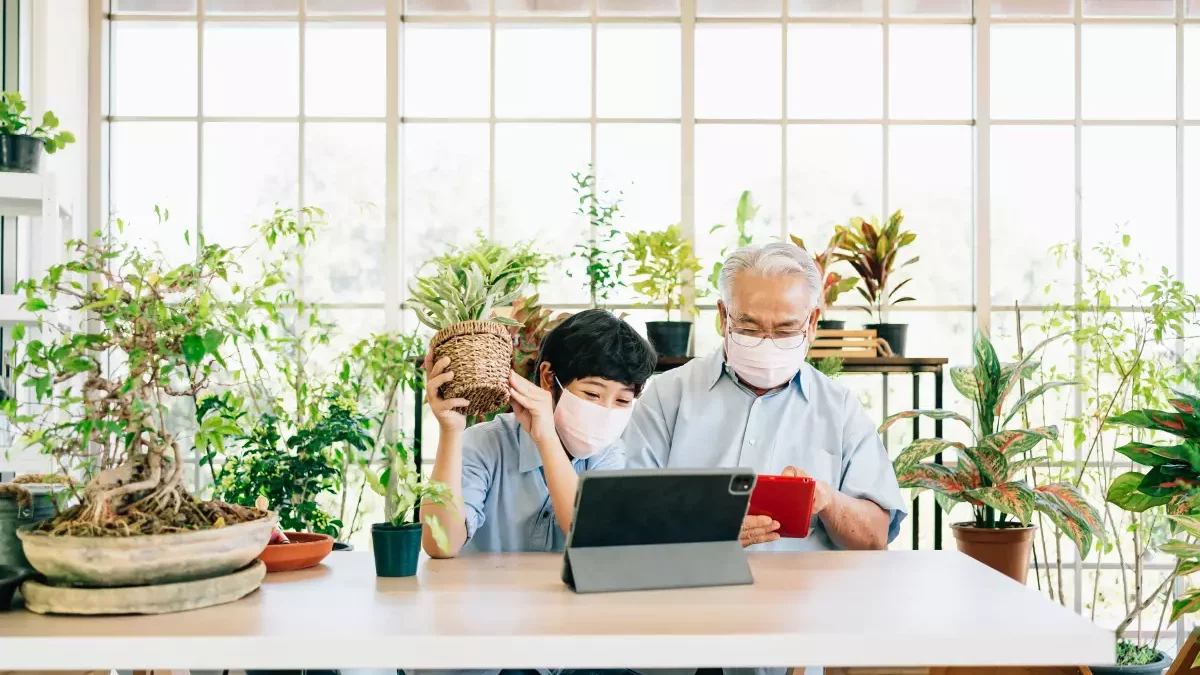
Fortify your physical and mental defences with vitamin D from the Sun
14/06/2022
สำนักงานอธิการบดี มหาวิทยาลัยมหิดล ได้รับการรับรองสำนักงานสีเขียว ปี 2564 (Green Office) ระดับดีเยี่ยม จาก กรมส่งเสริมคุณภาพสิ่งแวดล้อม กระทรวงทรัพยากรธรรมชาติและสิ่งแวดล้อม
15/06/2022When talking about children and the elderly, the relationship between the two ages is known as “grandparents raising grandchildren”. The latest Thai family statistics of the year 2018 shows rough figures that Thai children live with the elderly approximately 31.8%, of which 27.8% are in a family of three generations, more or less depending on the context of each family. In another group, about 4%, children live with their grandparents alone in a skipped-generation family. How will this group of children grow up? The answer may point to the important role of grandparents in this day and age.

With the awareness about aging society, a lot of development campaigns and promotions of Thai older adults have been set up. As a result, not only aging population has increased in number but their potential has also been recognized. They become dependable people without depending on others. This is a good opportunity to use the potential of the elderly to support children to grow up with good qualities. For the question of how the grandparent role affects nature-deficit disorder in grandchildren, the following two aspects are considered.
The first aspect is the view of general public or the first view that people often have in their mind; that is the parenting role taken by grandparents is not different from that taken by working parents. Both of them may make their children suffer from nature-deficit disorder by using technology in their upbringing. In addition to the issue of spoiling grandchildren, here we need to understand the deterioration of physical health in aging adults which causes slow thinking and movement, or having health problems and losing ability to catch-up on development of active and highly enthusiastic grandkids. Using technology, such as TVs, mobile phones, computer game and digital media, enables the seniors to have some time to rest but causes suffering from nature-deficit disorder in children. Another issue is about the residential area in the city. An urban house has less green spaces or natural areas. Some elderly people may have difficulty taking their grandchildren out to play or learn in nature. A natural public space in urban areas is too not easy to find in our country. Playing is thus often an activity done in houses, buildings or condominiums. The children have then less opportunity to experience nature.
For the second aspect, an opposing opinion is given. Upbringing by grandparents, instead, offers children more chances to experience nature. They live, play and learn in nature or from nature more frequently than when they stay with parents. This is because the nature of older people tends to approach nature more than working age people like most parents. The elderly enjoy spending time in gardening, planting trees and travelling to beautiful temples in peaceful, shady surroundings or to the seaside and forest. Some studies found elderly Thai people are fond of travelling. They often visit natural attractions and ancient sites. They are also interested in seeing people’s way of life and learning the local culture. More significantly, if they have grandchildren to take care of, they often persuade the kids to join their activities; for example, gardening or planting trees and having a trip together. The studies also reveal that Thai elderly mostly prefer travelling with their children and grandchildren. The grandchildren are thus able to experience the natural life together with their grandparents and may not suffer from nature-deficit disorder. Another issue is about the nature of the family in which the children live. A number of children do not live with their parents because father and mother have to migrate to the city to work and cannot look after their children by themselves. Another possible reason is the high cost of living in the city makes it difficult for parents to raise their children. The solution for this group of parents is to send their children to live with grandparents. So they grow up in a skipped-generation family. This type of family is increasing in number and tends to grow incessantly in the future; especially in rural area, it rises up to 75%. Regarding the issue of nature-deficit disorder, these children are less likely to have the symptoms because they live with their grandparents in the midst of nature. Most rural houses are surrounded with trees, grass and farm plantation. Children are so free to run and play in the fields, climb trees and explore forests or the mountains. Of course, there is no lack of natural experiences for them. This is the reason that supports grandparents’ role as another important assistant to protect children from nature-deficit disorder.

Nevertheless, solely leaving grandparents to raise their grandchildren according to their natural aptitude cannot give sufficient support for child development in all areas. Researchers indicate grandparenting is pretty good for taking care of life and supporting the absorption of religious beliefs, the concept of art and culture, as well as Thai ways of life and nature. On the contrary, they may give less support in terms of intellectual development which is what parents can do better. In case of children lacking of parental care or busy parents lacking of time for such support, grandparents will therefore become the most needed caregiver. Consequently, they should be strengthened and supported to be able to make progress on development and abilities of children so that children grow up happily and reach their full physical, mental and intellectual potential.
All above does not mean to encourage parents to leave their children with grandparents. The fact is that being with parents is still the most important thing for children. But when some parents have a hard time or need, getting help from grandparents is an effective solution and should be done. In family, every member must help and support grandparents’ parenting role, either more or less according to the family context. For the public sector, supporting the strength of parents in raising their children should go on in parallel with fostering the strength of grandparents in caring grandchildren. The latter should actually be more intense because we have to accept that parents are not as important as grandparents for some children. The grandparents have an influence on the development of a sense of humanity in children who are the nation’s valuable resource. In addition to child development, it may be thus necessary to help push for schemes that develop older people and remove the image of ordinary grandparents raising up grandchildren. Not only providing care for physical routines like eating and sleeping, grandparents must play a role of an “oldie but goodie”. They “know how to look after” children and can do it properly and correctly according to child development principles. They also “know about development” of children which is related to their ability to play with children, promote learning and develop skills of children, Essentially, they have to integrate previous knowledge constructed from experience with the new learning, With such skills, the elderly will be able to support the parenting or completely replace the parents’ role. In the future, this senior group will be an important force in improving the quality of life of children and be a person who children can depend on.

Published : June 29, 2021
By : Asst. Prof. Dr. Sawitri Thayansin National Institute for Child and Family Development, Mahidol University

